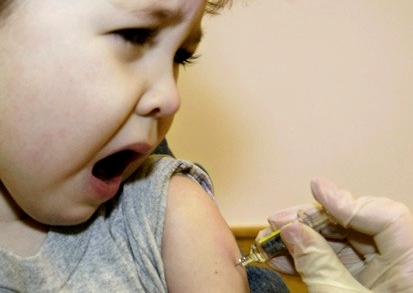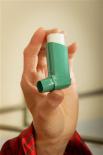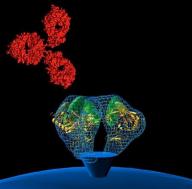
Vaccines could halve sickle-cell deaths in Africa
Vaccination against bacterial infections using vaccines readily available in developed countries could save the lives of thousands of children with sickle-cell anemia in Africa, researchers said on Thursday.
Tom Williams, an expert in tropical diseases from the Kenya Medical Research Institute (KEMRI), said 90 percent of children born with sickle-cell anemia in Africa die before they are diagnosed and can get treatment, and half of those lives could be saved if sufferers were protected from bacterial infections.
“The problem here in Africa is that there is hardly anyone doing any screening,” Williams said. “So, as a result, most of the children in Africa who are born with sickle-cell anemia are dead before they are even diagnosed.”
Experts estimate that sickle-cell anemia kills more children in Africa than HIV, Williams said, but while HIV commands vast attention from the international community sickle-cell anemia is “virtually invisible.”
In a study conducted in rural Kenya and published in the Lancet medical journal, Williams and colleagues at the KEMRI/Wellcome Trust program in Kilifi screened almost 40,000 admissions to hospital and identified 2,000 cases of bacterial infection.
While in the general population fewer than three in 1,000 children were found to have sickle cell anemia, this figure increased more than 20-fold — to more than 60 per 1,000 — for children admitted to hospital with bacterial infections.
Sickle-cell anemia affects millions of people worldwide, but more than 80 percent of cases are in Africa, where around 200,000 children are born with the disease every year.
It is a genetic disease in which red blood cells deform into a sickle shape and cluster, blocking blood flow and causing pain, vulnerability to infections and organ damage.
The findings confirm that, just as in richer nations, African children with sickle-cell anemia are at huge risk of bacterial infections because the disease hampers blood flow and causes episodes of acute anemia, Williams said.
The most common causes of bacterial infection among children with sickle-cell were Streptococcus pneumoniae (41 percent of cases) and Haemophilus influenzae type b (12 percent of cases).
Vaccines against both — a pneumococcal vaccine and another called Hib — are given routinely in the United States and Europe, but have been slow getting to Africa because funds have largely been focused on other priorities.
Dan Thomas of the Global Alliance for Vaccines and Immunization (GAVI) in Geneva, said his group provides the Hib vaccine, which is made by a range of drug companies, to 35 African nations as part of a 5-in-1 shot.
GAVI has also introduced a pneumococcal vaccine made by Wyeth, a U.S. drug company which is being bought by Pfizer, to Rwanda and Gambia, and is “working on rolling an improved pneumococcal vaccine out across Africa in the next few years,” he said.
Vaccines, Vaccines Health, Vaccines Health Latest, Vaccines Health Information, Vaccines Health information, VaccinesHealth Photo,Exercising for Weight Health photo, Vaccines Health Latest, VaccinesHealth latest, Exercising for Weight Health Story, Healthy Minnesota Health story, Vaccines Video, Vaccines video, Vaccines Health History, Vaccines Health history, Vaccinesover Picture, history, Vaccines Asia, Healthy Minnesota asia, Vaccines Gallery, Exercising for Weight gallery, Vaccines Photo Gallery, Healthy Minnesota photo gallery, Vaccines Picture, Vaccines picture, Vaccines Web, Malaysia Health, web Health, web Health picture, video photo, video surgery, gallery, laparoscopy, virus, flu, drug, video, Health Health, calories, photo, nutrition, health video, symptoms, cancer, medical, beating, diet, physical, Training, organic, gym, blister, exercise, weightloss, surgery, spiritual, eating, tips, skin, operation, bf1, Vaccines, could, halve, sickle-cell, deaths, in, Africa




